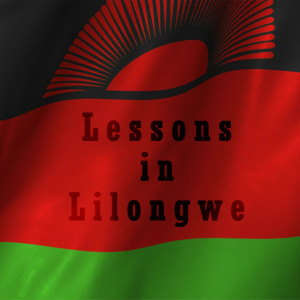I remember reading in my children’s Bible about the tax collectors. Nobody liked them because they not only collected taxes, but also overcharged people and took cuts for themselves. This theme of everyone taking for themselves is all too common in our world and leads to distrust and disgust in authority.
Shortly before returning to the United States for the holidays from Malawi, a truck full of police and military men pulled up next to my car as I was driving and demanded my driver’s license. They claimed I was “dangerously parked” while stopped in a long queue of traffic to let my friends hop out across from a bus station and would, therefore, be fined K10,000 (approximately $18). As I questioned them, a military man with a large gun entered my car, sat in the passenger’s seat, and began rummaging through my glove compartment looking for other potential fines.
They wanted the money now, but I asked for a written ticket that I could pay upon going to the police station. The man with the gun remained in my car as I drove there, demeaning me and increasing my anxiety. He told me to stop asking “stupid questions,” accosted me for not understanding that there were traffic violations in this country, and reminded me that I am a foreigner. I felt helpless. Even though I knew they were trying to intimidate me and that I likely had done nothing wrong, they had succeeded in flustering me. The injustice of a made-up charge — targeting me because of my ethnicity — overshadowed the relative insignificance of the cost of the ticket. While I was an educated, competent medical student driven by altruism conducting a year of research in Malawi, in that moment, I felt dumb, silenced and violated.
I found in the book of official violations, that my ticket likely should have been for K5,000, but I ended up having someone advocate for me and pay the officer who took my license K2,000, so I could get it back before flying to the United States. This whole ordeal was only so that one man could have an extra $3.50 in his pocket. They saw me as an uninformed white person and took advantage of me — maybe to have extra money for Christmas presents, as some Malawians hypothesized. I can’t say that I can relate to feeling financial demands so strongly that I want to bribe and steal from others. And, these were employed Malawians, not to mention, the financial situation of those living off of subsistence farming, odd jobs or begging. But it seemed the police were part of a larger system of corruption, and that it was normal in Malawi or in Mozambique for a policeman to check your license and then ask you for money or a Fanta because it was hot that day. Authority could be used to get what you wanted.
When I was back in the United States for the holidays, I found an Android phone lying partially under our car in the Target parking lot. The battery was too low to retrieve a number to call to notify the owner, so we entrusted it with Target’s customer service. When handing the phone over, I wondered if I would have done the same thing in Malawi. Would a local shop employee pocket the phone? The financial need seems so much greater in Malawi than in the white suburbs of St. Louis. That phone equals school fees and extra food that month. In that sense, it is possible that financial demands trump our cultural sense of integrity.
Corruption takes something in its original state and debases it. Files can become corrupt on a computer through a virus or change in syntax. But, what corrupted the Malawian police? Assuming they entered this profession to enforce justice and protect citizens’ rights, what transformed them into extortionists who were more focused on kwacha in their pockets than safety on the road? Maybe it has to do with Maslow’s hierarchy of needs — that there isn’t enough wealth available to the average Malawian, so a bribe could mean more food on the table for their families. These Malawi and U.S. examples are not contrasted to suggest that one place is more corrupt than the other, but rather, it is to insinuate that one’s socioeconomic condition might influence or even corrupt the moral compass.
Malawi’s Cashgate scandal in 2013 caught government officials siphoning off funds for their personal bank accounts. Corruption here extends from the policeman to the president. There are many impoverished and malnourished people in Malawi, and trust that the government will relieve their problems and care for its citizens is lacking. My experience with the Malawian police was my first personal encounter with corruption, and I felt violated. But the people of Malawi have a plethora of experiences and stories that make them doubt their government, their economy and even the existence of goodness and fairness. In discussion with expats here, it seems this corruption is just less disguised — more blatant — than it is in the United States, but that isn’t to say it doesn’t exist here as well.
Global health work can seem glamorous, exotic and noble. Lessons in Lilongwe presents introspection and critical observations to illustrate what global health research and living in Africa are really like. Come join Austin on his year off of medical school for a research fellowship in Lilongwe, Malawi.

